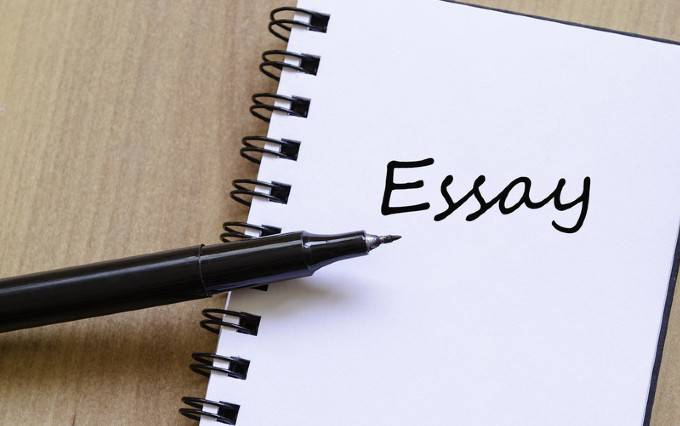
Writing a literary commentary is an important part of the International Baccalaureate exam in English (or any other language) at the A1 level. However, literary commentaries are not particularly distinctive for this exam, so this article may be taken up by anyone.
There are so many of these exams in languages, literature, history, culture… And everywhere, you need an essay or an academic paper? Even an essay in biology, physics, chemistry, or other subjects? Choose a research paper writing service to save time and money. Trust the professionals, because they follow a clear structure of the paper or essay and will follow your wishes if you have. Further, in the article, you’ll find essay writing tips and how to check writing services by real reviews. For example, Reddit.
Contents
Read the desired text several times
Read it once to understand the essence of what the author wants to say. Write down your first impressions of certain parts of the text, so you can refer to them when you write a comment. When you have finished, go back to the beginning and read everything again, this time making notes of the keywords and phrases and writing notes for yourself in the margins. The minimum number of times you can read the text is two, but it is better to do it three or four times.
Plan your essay
Write down the key points that need to be noted. Put them in a logical order, so that your commentary will not be unclean. Find quotations from the text for each paragraph.
You must comment the following (although not necessarily in this order):
• Subject – What is the essence of the text? There may be a lot of them, but try to find one or two key topics for discussion. It may help if you pay attention to information such as the name of the writer or the date the text was written.
• Tone – Who is the person who wrote the story? Indicate whether the narrative is from the first or the third person. If it is in the first person, is it the author or someone else? Who is the text addressed to? You must also look at the setting and how it affects the tone of the story and the overall meaning of the text.
• Form / Structure – Identify the genre (artwork/nonfiction, essay, article, manuscript, etc.) of the text. Is the text a circular or retrospective narrative? Consider the obvious ways of dividing the text into sections (physically or otherwise). Consider how the inverse structure and form affect the essence or message of the text.
• Idea/Meeting – State the writer’s goals. Is this text opinionated, informative, or descriptive? Identify the implication and find the satire or irony in the text.
• Tone/Atmosphere – Identify the atmosphere of the text. Does it have a sense of emotion or some kind of special mood? Describe how the author achieved this effect (think about word choice, rhythm, syntax). Again, refer to the ambiance and its effect on tone and atmosphere.
• Sensory Details – Describe how the author is willing to use the sensory organs to create a more vivid picture for the reader. Do not forget to always relate your observations to the overall message of the text.
• Image is one of the most important sensory details. Are there any visual images in the text? Describe the metaphors and comparisons here (both as individual examples and in the text as a whole).
• Manner of presentation – Describe the vocabulary of the text. Can you find out what kind of words the author uses – are they grouped by topic (happiness, restlessness, etc.)? You also need to guess the words that seem out of place – what effect do they have on the reader/viewer? Do they somehow help to more accurately reveal the theme of the text?
• Rhythm/Rhyme/Audience Effect – Describe the type of rhyme (if any). What effect does it have in the context of the general topic? Reveal the essence of the rhythmic layout of the text (you can do this both when reading the poetic text and the prose). Does the rhythm change? Also, find examples of alliteration in the text. Of course, you have to be more careful here – if rhythm/rhythm/audial effects do not have any effect, it’s better not to think about them at all.
Write your own commentary
Now that you already have a rough idea of what you want to publish, start writing your commentary. Sometimes the beginning may be important to write – you can start with the main part (which you have just planned) and only at the end write the introduction. This is what you need to remember.
Write the conclusion part
In this part, you should discuss the valuable information you have heard before, without including new ideas.
Extra tips for your essay
• Google “good customer feedback examples” to find reliable writers who will quickly write you an essay or academic paper on any topic.
• Use quotations from the text/story to back up your thoughts.
• When writing about a prose novel, remember the following:
Focus on the author’s style. Reveal the effects of the literary techniques he uses, not just the effect of each individual technique.
• When writing about a poetic work, bear in mind the following:
When you reveal “manner”, do not forget to mention the “lyrical hero”. Do not use the words “narrator/narrator” to describe the person from whom the story is written.
Do not forget that stories are often meant for the audience, not the reader.
• If you have been asked to paraphrase a text, but you don’t know how to do it, don’t blame yourself. A paraphrase is simply rewriting the original text in your own words, changing its structure while retaining the basic idea of the original text.



